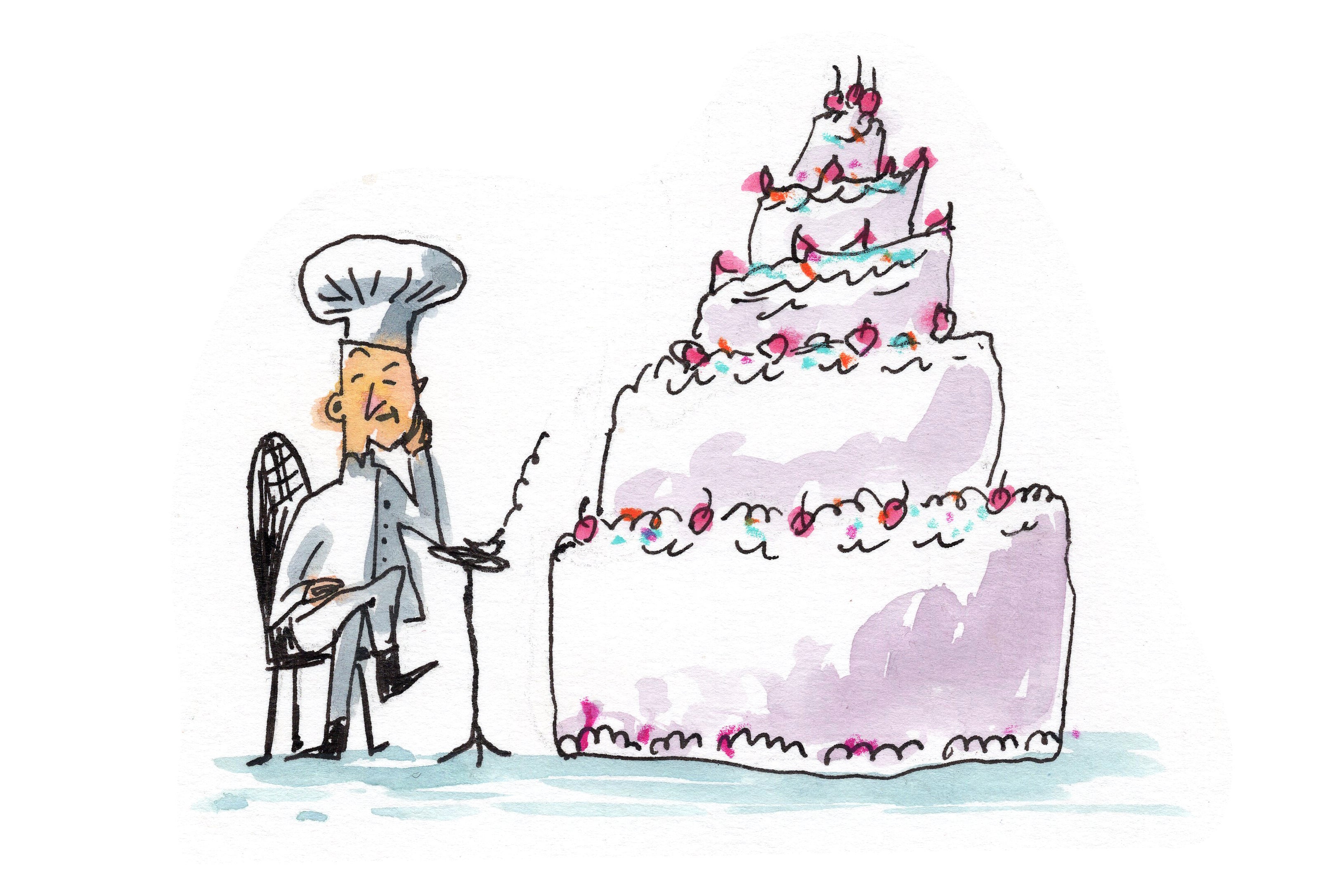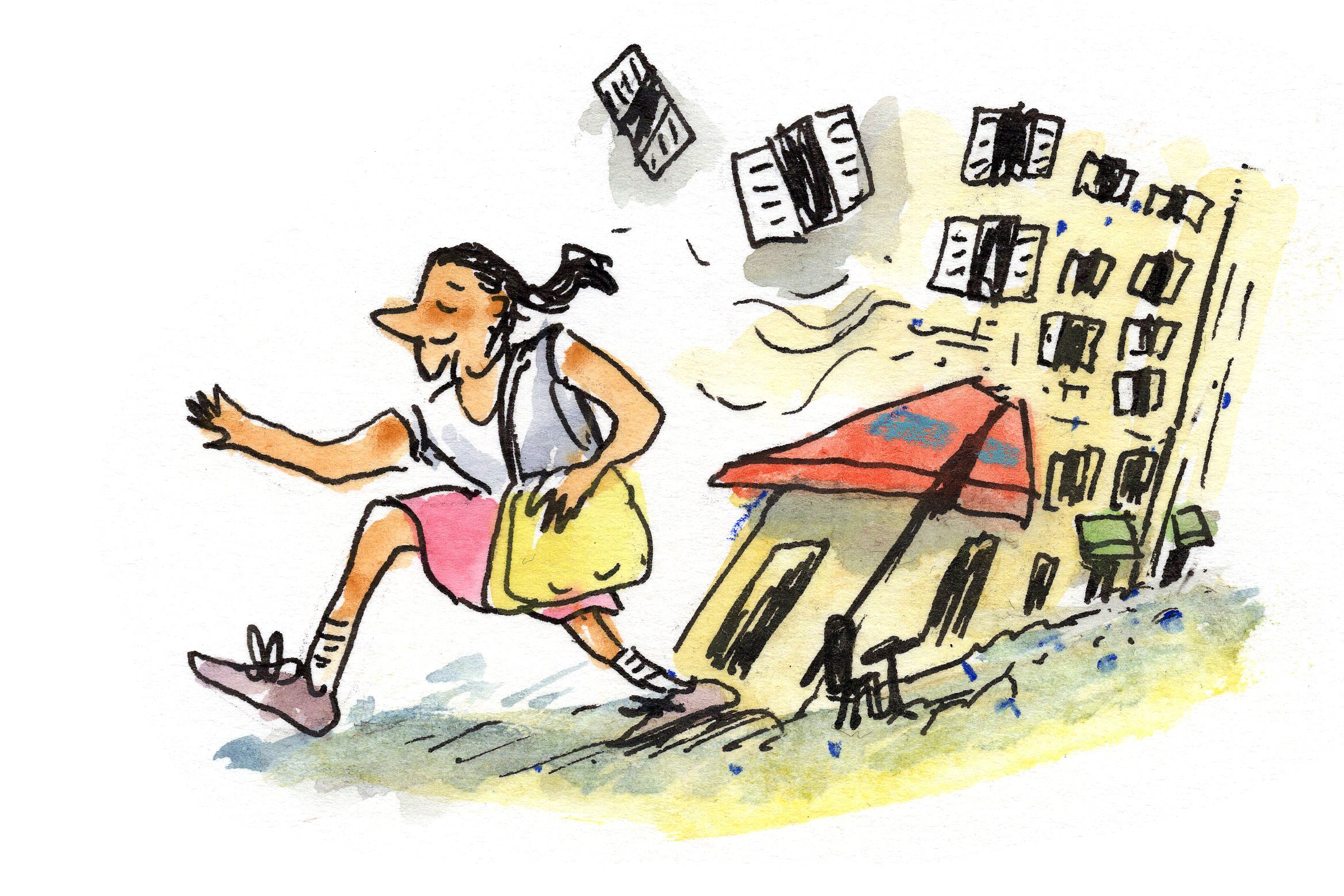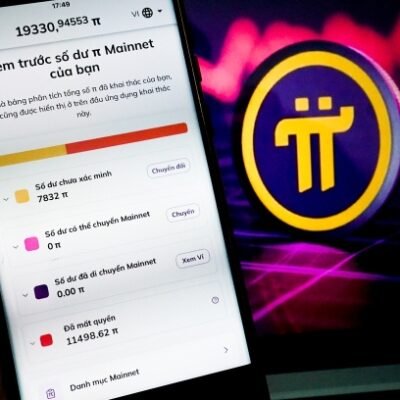This is part of Slate’s 2024 Olympics coverage. Read more here. If you’re enjoying our coverage from Paris, join Slate Plus to support our work.
Every day for the past two weeks, dozens of NBC staff have been brought to visit the Rue du Nil, a slice of Paris straight out of Amélie. Under the watchful eye of a private security guard at the street’s entrance, they visit the bakery, cheese shop, grocer, butcher, and fishmonger—all owned by one organic outfit, Terroirs d’Avenir—and the restaurant, wine shop, and takeaway joint across the street, all owned by the chef Greg Marchand. It’s a made-for-TV bit of Paris, and TV likes it right back.
Just a few blocks away at the bakery BO&MIE, it’s a different story. CEO Jean-François Bandet expressed the complicated feelings many Parisian merchants have in a short essay on LinkedIn the other day: “Business side, the results are clear: We’re approaching the halfway point of the Games, and BO&MIE’s receipts are down 15 to 30 percent year over year… but… how can you not be enthusiastic about what’s happening in Paris right now?”
That’s how it is in Paris this week, with a few districts on the podium of Olympic spending, and everyone else watching from afar.
There are three types of benefits that economists expect in exchange for the costs of putting on the Olympics: short-term spending, long-term growth, and the aura of good vibes.
Long-term growth is impossible to assess at the moment. Good vibes, as this diary has documented, are certainly in decent supply. (Though it’s not clear how Paris—already one of the most visited cities in the world—would benefit from the PR hit that accompanied the Games in, say, Barcelona.)
But short-term spending was the benefit that meant most to the 62,000 small businesses that give Paris its indelible street life.

These bakers, bistros, and boutiques are at the end of a long, exhausting hype cycle. It began with visions of an Olympic bonanza, then curdled into a fear of total chaos, before finally settling on: meh.
On Tuesday, I stopped into my friend Marion Dubuc’s boutique Pétrone, in Paris’s 2nd arrondissement and saw two familiar faces. Dubuc was there, behind the counter, helping a customer manage an exchange. On the walls, modeling Pétrone’s men’s underwear, was Paulin Riva, the captain of France’s gold medal–winning rugby sevens team.
Previously, most of the six-year-old brand’s “models” were the fittest friends of Dubuc and her partner, Nicolas Hernandez. But last year, they got Riva—who hails from southwestern France, where the company is based—into their underpants. Now he’s an Olympic champion, and the question for Dubuc is: How do they make the most of it? The International Olympics Committee’s stringent code prohibits anyone save its giant sponsors from advertising with the Olympic rings, the words Olympics and Paris Games, or pretty much anything else that has to do with the massive sporting festival that has currently taken over the city.
Not every local business has a half-naked medalist on the wall. But most of them are facing a similar dilemma, trying to take advantage of a mega-event that is happening in their midst—one they eagerly anticipated, stocking up and staffing up—but that seems to be doing virtually nothing for much of the city’s economy. “There may be an Olympic effect,” Dubuc concluded, “but not in the shop.”

It’s a familiar sight for critics of the Olympics, who say the event always overpromises and underdelivers on “secondary” economic impacts—not the ticket sales themselves, but the spending on hotels, restaurants, and shops that convinces the public such events are worthwhile. As the economists Robert Baade and Victor Matheson wrote in a 2016 paper, “The overwhelming conclusion is that in most cases the Olympics are a money-losing proposition for host cities. … If one wishes to know the true economic impact of an event, take whatever numbers the promoters are touting and move the decimal point one place to the left.”
The authors suggest three reasons for this. First is the “substitution” effect: Millions of French visitors are spending their money on Olympics tickets, trains, and hotels. But if they weren’t, a lot of that money might have been allocated for tickets, trains, or hotels elsewhere in the country. Second is the “crowding-out” effect: The Olympics often deter other tourists from visiting, and the U.K. actually counted fewer international visitors during its Olympic summer than the year before. In Paris, many other aspects of economic life may also be crowded out (many businesses have just taken three weeks off). Third is the multiplier effect: How much does Olympic spending really influence the economy? When a hotel raises its rates, it rarely raises its wages or hires more staff. If the hotel is owned by a publicly traded company, the profits are distributed to shareholders around the world.
The statistics for Paris so far are inconclusive: The hotels have rebounded to higher-than-usual occupancy after much griping earlier this summer. Airbnb listings doubled, with the occupancy rate remaining stable. According to the regional marketing agency, international travel during the Olympic period is up 8 percent compared with last year. Whether that’s enough to make up for the pre- and post-Olympic lull remains to be seen; it’s not even clear the Olympics—in spite of all the money spent on hosting—will produce a better-than-average summer for the city’s economy.
But even if they do, it won’t be a normal summer. Who’s not here? Your Marais-strolling, artisanal-buying gastronomes that have made the capital their own in recent years. Who is here? An American family of five, with kids that shout “Balls up!” before the serve in a volleyball match, eating pizza by their hotel every night. A Dutch couple, sleeping in an RV at the end of the commuter rail line, eating supermarket sandwiches between games. “They go from A to B,” one merchant lamented. “They’re not flâneurs.”
Above all, Olympic tourists are French, and less likely to fill a suitcase with purchases than are their foreign peers.
As has been observed in previous installments of Mise-en-Seine, the Games have produced a great shift in the economic geography of Paris; the whole city appears to be tipping west on its axis. Although restaurants and shops in those parts of town appear to have recovered from the weeklong opening ceremony police state, the same cannot be said for parts farther east.
“We’re unhappy. We had meetings with the city, and they told us to stay open,” said Claudia Kuhn, the owner of the restaurant and grocery Maison Maudain in the Sentier neighborhood, a stone’s throw from NBC’s tours. “There’s nobody here. It’s terrible.” Like many around town, the office across the street has enforced a mandatory vacation during the Olympics. And Kuhn’s plan to get closer to the action—a 10-day artisan food market on the Boulevard Saint-Germain—was abruptly canceled by the Paris police last month. The restaurant is losing money every day, she said. “It was a bad idea to stay open.”
![Gold: Simone Biles' French coach brought her some real pains au chocolat after the gymnast filmed herself eating supermarket pastries.
Silver: The Paris badminton stadium's special-purpose air conditioning design ensures no ventilation can affect the shuttlecock's trajectory.
Bronze: Paris Mayor Anne Hidalgo uses the English word "fuck" in a French newspaper interview: "fuck les réacs [reactionaries]"](https://compote.slate.com/images/28848385-1dd6-4cc1-a98c-9ec8b4c79b38.jpeg?crop=1080%2C1080%2Cx0%2Cy0)





